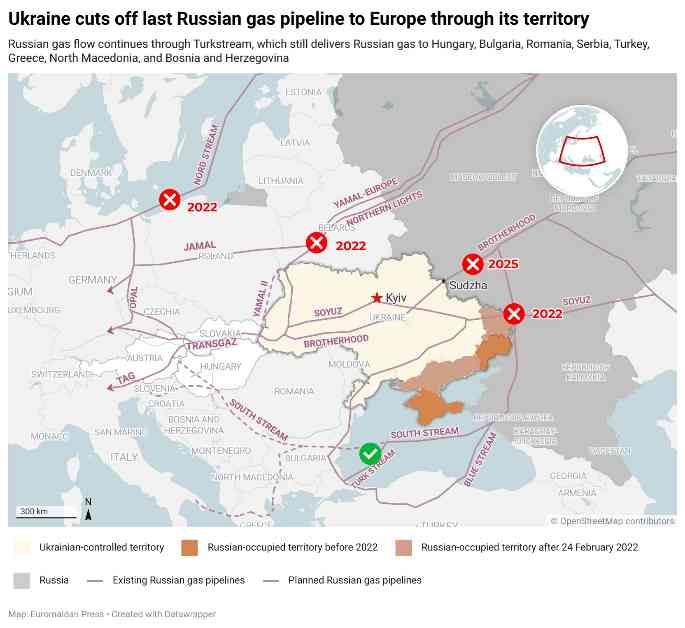Europe’s Energy Landscape Shifts Dramatically
In a monumental shift in the global energy landscape, Russia’s long-standing grip on Europe’s gas supply is finally loosening. The recent cessation of Russian gas transit through Ukraine marks the beginning of a new era in Europe’s energy security. This historic moment signifies a significant milestone in Europe’s quest for independence from Russian energy dominance.
A Legacy of Dependency: From Soviet Roots to Modern Realities
The roots of Europe’s energy dependence on Russian gas can be traced back to the late 1960s when the first pipelines began delivering gas from the Soviet Union to European countries. Over the decades, Europe’s reliance on Russian gas only deepened, with major infrastructure projects solidifying this dependency. Despite political turbulence and global crises, the flow of Russian gas to Europe remained a constant, shaping the energy landscape for generations.
The Putin Era: Gas as a Political Weapon
The dynamics of Europe’s energy relationship with Russia underwent a significant transformation in the early 2000s under Putin’s leadership. Gas, once a commercial commodity, became a powerful political tool used to influence European politics and exert control over neighboring countries. The construction of pipelines like Nord Stream 1 and aggressive maneuvers to control Ukraine’s gas transit system highlighted Russia’s strategic shift towards weaponizing energy resources.
Russia’s Strategic Defeat and Implications
The recent developments in Europe’s gas supply represent a strategic defeat for Putin’s Russia on multiple fronts. The loss of the European market will have far-reaching economic consequences, impacting foreign currency earnings and exacerbating budget deficits. Additionally, Russia’s diminished influence in European politics due to the shift in energy dynamics underscores the profound implications of this new era in Europe’s energy landscape.
As we witness this historic transition unfold, it prompts reflection on the intricate relationship between energy, politics, and global power dynamics. The evolving energy landscape in Europe highlights the complexities of maintaining energy security in a rapidly changing world. This shift away from Russian gas dominance opens up new opportunities for diversification and independence, laying the foundation for a more resilient and sustainable energy future for Europe and beyond.

















